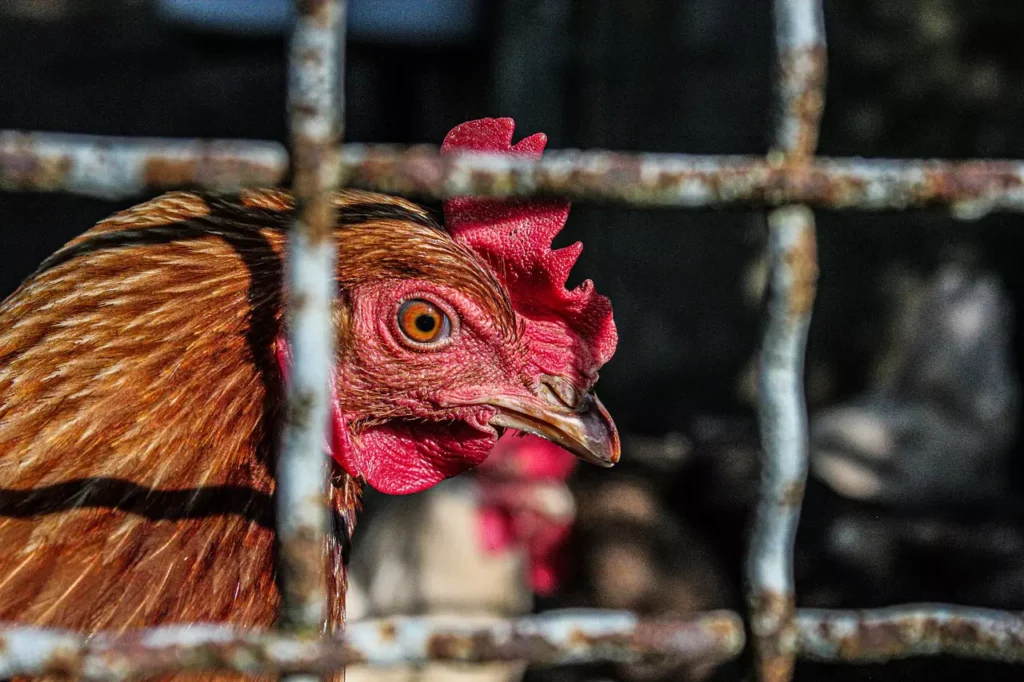National Sheriffs Assoc., National District Attorneys Assoc., state sheriffs’ associations, and hundreds of county sheriffs and DAs demand Congress pass legislation to step up enforcement and end barbaric, crime-infested fighting syndicates
Washington, D.C. — Led by the National Sheriffs’ Association and the National District Attorneys’ Association, law enforcement groups across the United States are calling on Congress to stop delaying action on the FIGHT Act and to treat dogfighting and cockfighting as crime-infested enterprises that threaten the safety of our communities and the well-being of commercial poultry flocks throughout the United States.
Animal Wellness Action and the Center for a Humane Economy highlighted that more than 330 law enforcement agencies are backing the FIGHT Act, H.R. 2742 and S. 1529, led by Reps. Don Bacon, R-Neb., and Andrea Salinas, D-Ore., and Sens. Cory Booker, D-N.J., and John Kennedy, R-La. The Congress recessed until after the elections without taking action on these bipartisan measures that would provide more effective enforcement tools to stop these cartel-run operations, animal and narcotics trafficking, and very tangible and documented threats to avian agriculture.

“A handful of lawmakers in Congress are blocking the FIGHT Act and disregarding the insights and experience of our nation’s top law enforcement officers and associations — from sheriffs from Alabama and Tennessee and Texas to Arizona and Iowa and Idaho — sending up a flare that we have a national epidemic of illegal dogfighting and cockfighting,” said Wayne Pacelle, president of the groups. “With every day the Congress dithers on this issue, commercial poultry flocks are put at risk of depopulation because of disease spread, cartels continue to traffic fighting animals and narcotics across our southern border, and animal fighters bring their illegal weapons and drugs and mayhem to our communities with startling frequency.”
The nation’s two top law enforcement organizations — the National Sheriffs’ Association and the National District Attorneys Association, which represent more than 5,000 elected law enforcement officials — are just two of the high-profile endorsers of the Fighting Inhumane Gambling and High-risk Trafficking Act (FIGHT). Sheriffs’ associations in Alabama, Arizona, Florida, Indiana, Iowa, Massachusetts, Michigan, Minnesota, Missouri, Kansas, New York, Ohio, Pennsylvania, Tennessee, and Texas are also among the endorsers, along with district attorneys’ associations from Colorado, Louisiana, and Nebraska.
“A significant part of law enforcement work involves deterrence,” said Sheriff John Zechman, president, Sheriffs’ Association of the Commonwealth of Pennsylvania. “Strengthening federal law and intimidating criminals, reminding them that the costs of their conduct will threaten their freedom, may drive some of these people out of business. Animal cruelty crimes are bound up with other dangerous social behaviors.”
“Tennessee has had persistent animal fighting problems, with the federal government conducting a major bust of two fighting pits in 2005 in Cocke County that revealed not only barbaric animal cruelty, but also chop shops, prostitution rings, and minors gambling large sums of money at the fights,” wrote Sheriff Jeff Bledsoe, Ret., the executive director of the Tennessee Sheriffs’ Association (TSA), in a letter to the state’s elected lawmakers in Congress.
“Dogfighting and cockfighting are inhumane and repugnant activities, bound up with other crimes and a direct threat to our poultry industry,” said Sgt. Shawn Ireland, deputy, Linn County Sheriff and 2024 Iowa State Sheriffs’ and Deputies Association president. “Eliminating cockfighting and dogfighting makes our state a safer place all around.”
Indeed, Iowa is the largest egg producer in the nation and has lost millions of birds to disease in the last three years. “Cockfighting drives outbreaks of serious poultry and zoonotic diseases, especially virulent Newcastle disease (vND) and highly pathogenic avian influenza viruses,” said Jim Keen, D.V.M, Ph.D., who is the director of veterinary sciences for the Center for a Humane Economy. He added that HPAI (“bird flu”) and virulent Newcastle Disease (vND) are the two most high-impact diseases of poultry worldwide. Animal Wellness Action and the Center for a Humane Economy released a comprehensive 63-page report on cockfighting links with avian influenza and virulent Newcastle Disease. The report documents that 10 of the 15 U.S. vND outbreaks originated from illegally smuggled gamefowl for cockfighting.
The Buckeye State Sheriffs’ Association (Ohio) and the Ohio Poultry Association, which hail from the second-largest egg producing state in the nation, have endorsed the FIGHT Act, as has the United Egg Producers.
By amending Section 26 of the Animal Welfare Act, the FIGHT Act would enhance enforcement of these laws by banning online gambling on animal fights; halting the shipment of mature roosters (chickens only) through the U.S. Postal Service (it is already illegal to ship dogs through the mail); allowing a civil right of action for private citizens against animal fighters after proper notice to federal authorities; and enhancing criminal forfeiture penalties to include real property for those convicted of animal fighting crimes.
Federal law enforcement has recently busted cockfighting operations in Massachusetts, Rhode Island, and California, and local law enforcement has broken up cockfighting fighting rings from South Carolina and North Carolina to Texas and California to Oregon and Washington. Federal law enforcement have broken up dogfighting operations in Georgia, Indiana, Maryland, New Jersey, South Carolina, and other states.
“Because of Congressional and citizen interest in the crimes of animal fighting, federal law enforcement has stepped up its interdictions,” added Mr. Pacelle. “But we have a long way to go before these crime networks are dismantled, and the FIGHT Act provides the tools to do exactly that. I am amazed that any lawmaker could stand in the way of supporting law enforcement and giving them more tools to take on these violent crime networks.”

